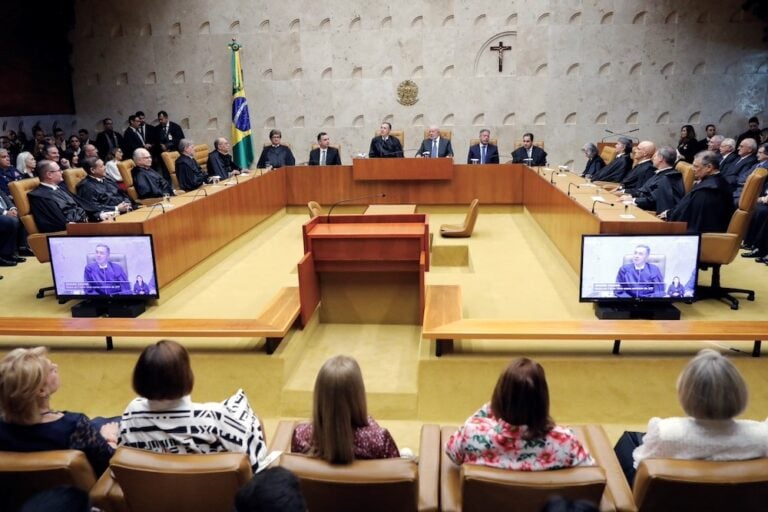(AMARC/IFEX) – According to the Observatory for the Right to Communication in Brazil (Observatorio de Derecho a la Comunicación de Brasil, http://www.direitoacomunicacao.org.br ), on 23 July 2007, the Federal District Public Prosecutor’s Office called for the annulment of the licenses of six radio and television media outlets. The six stations unfairly benefited from renewals of […]
(AMARC/IFEX) – According to the Observatory for the Right to Communication in Brazil (Observatorio de Derecho a la Comunicación de Brasil, http://www.direitoacomunicacao.org.br ), on 23 July 2007, the Federal District Public Prosecutor’s Office called for the annulment of the licenses of six radio and television media outlets.
The six stations unfairly benefited from renewals of their licenses or the granting of new concessions due to the influence of certain current and former members of Parliament who are either members, directors or owners of the media outlets in question. The politicians took advantage of their position as lawmakers and participated in the voting and discussion as regards the granting of these concessions. According to Brazilian legislation, such decisions normally fall under the jurisdiction of Congress.
The Inter-American Commission on Human Rights stipulates that governments have the authority to regulate and administer the broadcasting spectrum but adds that “radio and television licenses should be granted in an open, independent and transparent manner according to criteria that are clear, objective, reasonable and allow for equal opportunity for all.”
According to AMARC, these principles are violated when the party that grants licenses is linked to business interests and acts arbitrarily or fails to provide guarantees that all will be treated fairly and equally.
The Observatory reports that, according to the Federal Public Prosecutor’s Office, between January 2003 and December 2005, a number of Congress members took advantage of their position in order to “benefit, directly or indirectly, personal interests linked to the renewal of broadcast licenses”.
A complaint was filed by the Instituto para o Desenvolvimento do Jornalismo (Projor), which notes that “51 of the 513 members of parliament in 2005 held radio and television licenses”. Among those, “at least 20 were members of the Science, Technology, Communications and Information Commission which examines all requests for broadcast licenses”.
The Public Prosecutor’s Office called for the immediate suspension of the six stations’ licenses, to be followed by an annulment once the politicians’ wrongdoing has been confirmed. The stations may also be fined and the members of parliament could face charges for “dishonesty”.
For more information, see the source for this alert (in Spanish only):
http://www.direitoacomunicacao.org.br/novo/content.php?option=com_content&task=view&id=983&Itemid=99999999


